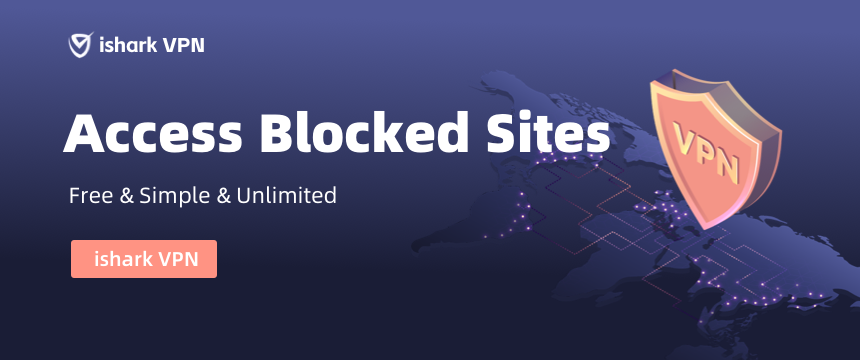VPN Limitations and Strategies for Video Streaming
ishark blog article
VPN (Virtual Private Network) usage for video streaming has become increasingly popular, as it allows users to bypass geographical restrictions and access content from different regions.
However, when using VPN for video streaming, users may encounter various challenges, such as geolocation restrictions and video quality issues.
Additionally, some video streaming platforms have implemented measures to block VPN usage. This article aims to explore the problems that arise when using VPN for video streaming, discuss the countermeasures employed by video streaming platforms to block VPN, and provide methods to bypass geolocation restrictions and choose suitable VPN service providers for video streaming needs.

Challenges of Using VPN for Video Streaming
1. Geolocation Restrictions
Video streaming platforms often impose geographical restrictions on content due to licensing agreements.
This means that certain shows or movies may only be available in specific regions, limiting access for users in other locations.
To overcome geolocation restrictions, users can utilize VPN to change their virtual location to one where the desired content is available.
VPN reroute internet traffic through servers located in different regions, effectively bypassing the platform's restrictions.
By connecting to a VPN server in the country where the content is accessible, users can enjoy unrestricted access to their favorite shows and movies.
2. Video Quality
Using a VPN to access content from distant servers can lead to reduced video quality, buffering, and slower streaming speeds. The increased network distance can cause latency and affect the overall viewing experience.
To address video quality issues, users should select VPN servers that offer optimal speed and performance.
High-quality VPN service providers maintain servers with sufficient bandwidth to handle video streaming demands. Additionally, users should choose VPN servers that are geographically closer to their physical location, reducing latency and improving video streaming performance.
Countermeasures Employed by Video Streaming Platforms
1. VPN Blocking
Some video streaming platforms actively detect and block VPN usage. They employ advanced techniques to identify VPN IP addresses and restrict access for users using VPN services.
To counter VPN blocking, users can opt for reputable VPN providers that regularly update their IP addresses and employ obfuscation techniques.
Obfuscation masks VPN traffic, making it harder for video streaming platforms to detect and block VPN usage.
2. Blacklisting VPN Servers
Video streaming platforms may maintain lists of known VPN servers and block access from these servers to prevent users from circumventing geolocation restrictions.
To avoid blacklisted VPN servers, users can choose VPN providers that regularly rotate and add new server IP addresses.
Reputable VPN services employ strategies to stay ahead of blacklists and ensure users have access to a broad range of servers.
Strategies to Bypass Geolocation Restrictions
1. Use Quality VPN Services
Choose reliable VPN services that offer a wide range of server locations and regularly update their IP addresses. Premium VPN providers often invest in technologies to evade VPN detection.
2. Server Selection
Select VPN servers located in regions where the desired content is available. By connecting to servers within the content's location, users can bypass geolocation restrictions and access the content they want.
3. Dynamic IP Addresses
Look for VPN providers that use dynamic IP addresses. Dynamic IPs are frequently changed, making it harder for streaming platforms to maintain blacklists.
Choosing Suitable VPN Service Providers for Video Streaming
1. Server Network
Ensure the VPN service provider has an extensive server network, including servers in regions with the desired video content. A broad network will offer more options to bypass geolocation restrictions.
2. Speed and Performance
Check the VPN's speed and performance through user reviews and speed tests. A fast and reliable VPN will provide smoother video streaming experiences.
3. Customer Support
Opt for VPN providers with reliable customer support to address any issues or inquiries promptly.

Conclusion
Using VPN for video streaming can be a viable solution to bypass geolocation restrictions and access global content.
However, challenges such as geolocation restrictions and video quality issues may arise. Some video streaming platforms have also taken measures to block VPN usage.
To overcome these limitations, users should select high-quality VPN services with a wide server network, dynamic IP addresses, and reliable customer support.
By making informed choices and following the strategies discussed, users can enjoy seamless video streaming experiences with VPN.









